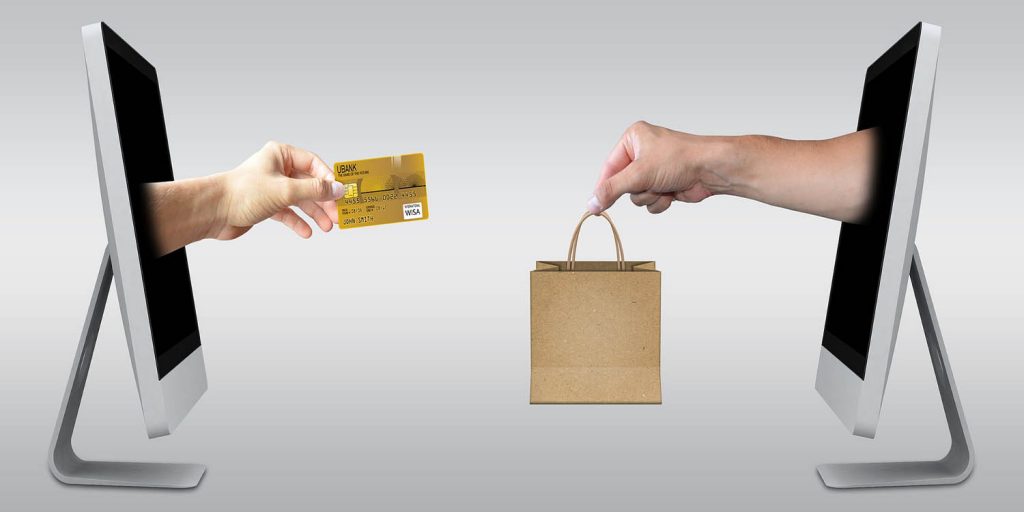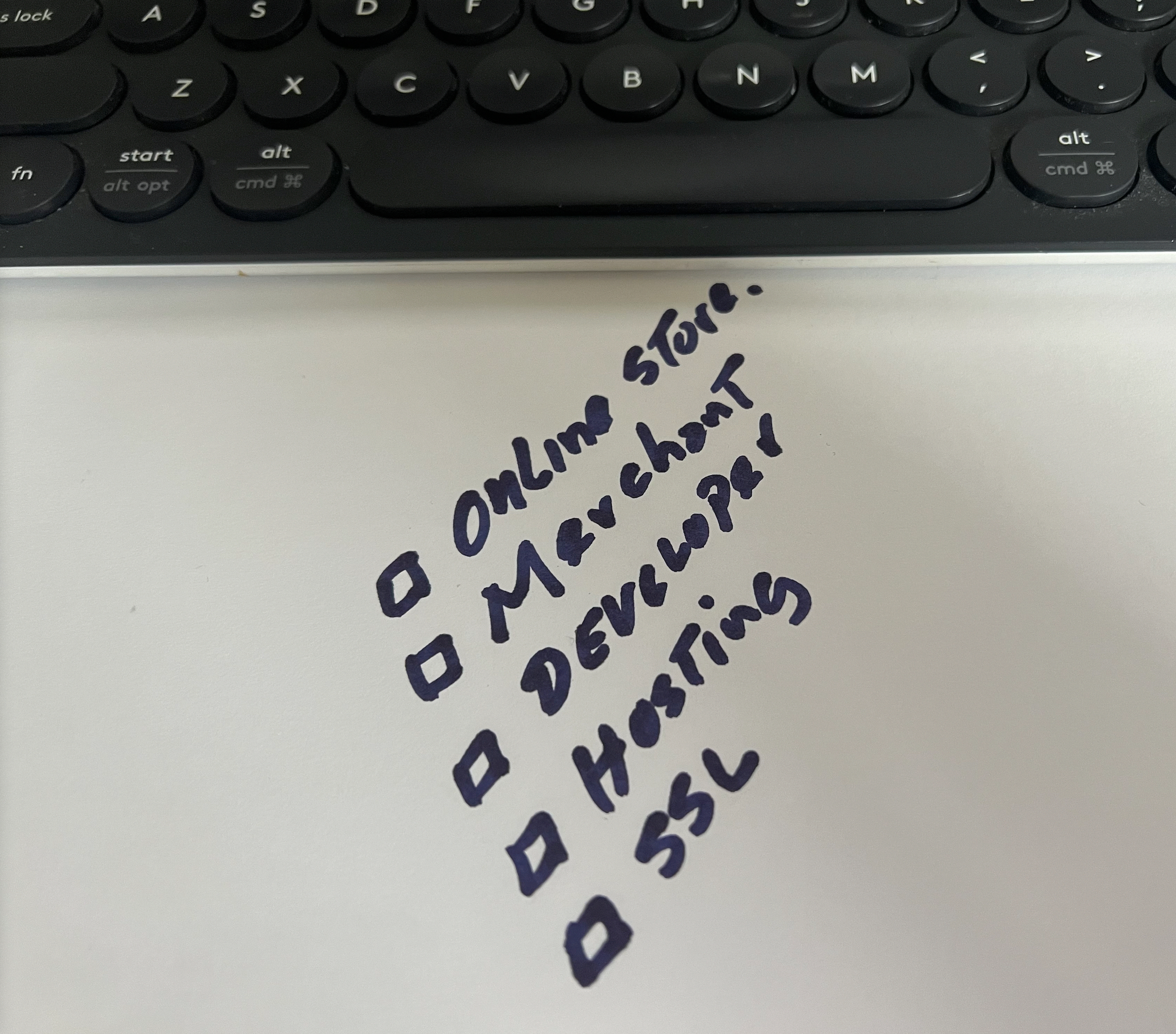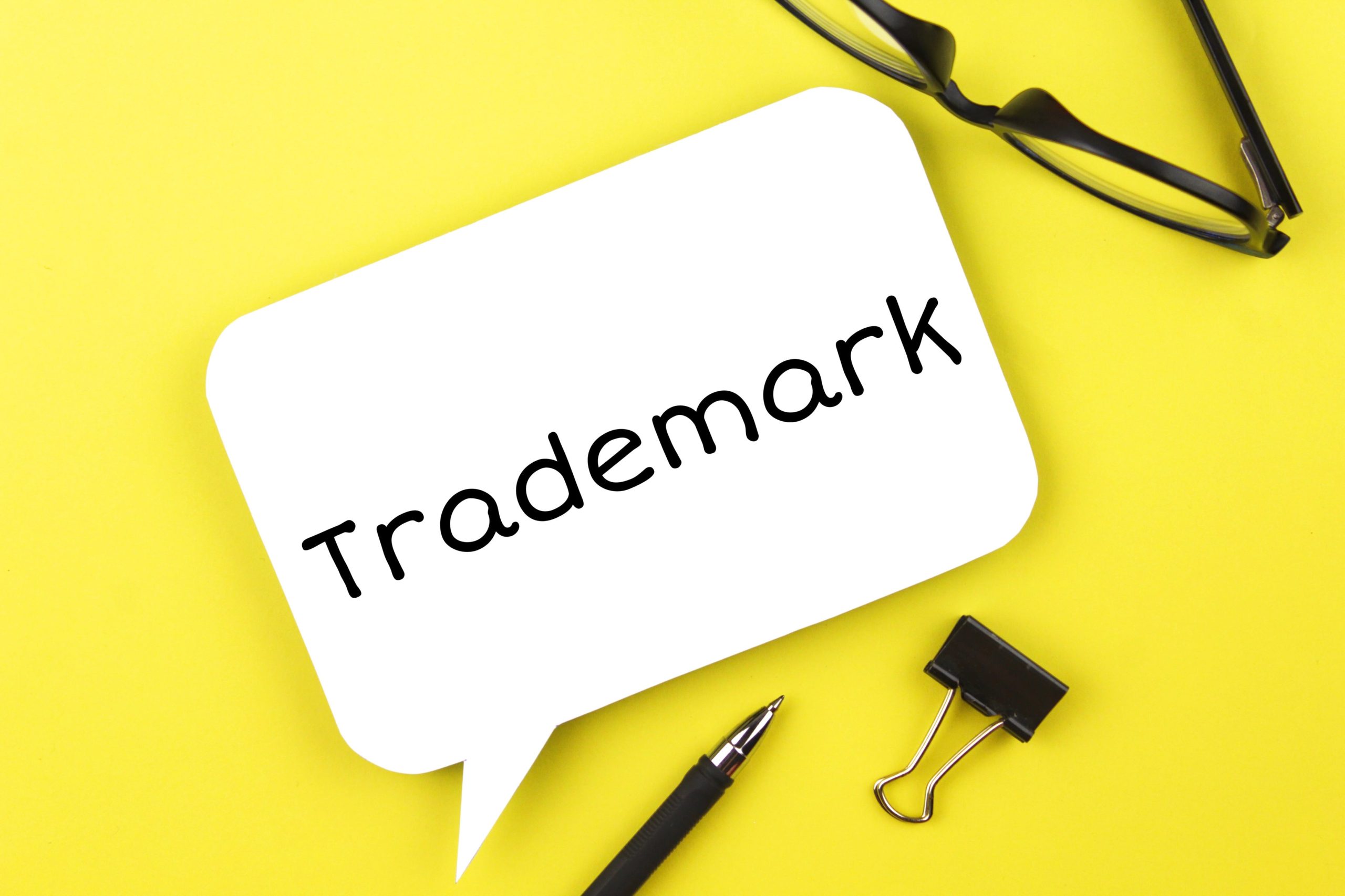Online success is dependent on conversion — and what’s one key element to customers converting? Having the right ecommerce merchant account.
For many, when we think about ecommerce payments, we traditionally think of payment processors and payment gateways.
At the end of the last decade, U.S. consumers preferred MasterCard as their online payment method, with Visa, American Express, Discover, and PayPal falling close behind.most popular online payment methods
But, interestingly enough, when you take a look at what payment services U.S. consumers used most in 2018-2019, we see a different hierarchy. PayPal wins with the biggest slice of the pie at 89%.
payment services 2019
But what about ecommerce merchant accounts? What are they, and why should online businesses look to implement them in their stores?
The answer depends on your niche, industry, and business model.
Let’s look at B2B, for example — it’s been found that 74% of B2B customers would switch to a new B2B ecommerce site entirely for better purchasing options — and, to equal measure, they would buy more products if they could pay by invoice. Ecommerce merchant accounts can help you tailor your business to consumers’ expectations.
Spoiler alert: there’s no denying that payment processors are a core piece of your online store — and there are far more options than your traditional credit and debit cards.
Before we dive in, let’s set the stage on what an ecommerce merchant truly is.
What is an Ecommerce Merchant?
The term ‘merchant’ is used pretty frequently in the ecommerce industry — but what does it actually refer to? Surprise: there’s more than one answer.
1. An online retailer.
In the most traditional sense, a merchant is someone who sells goods and services to make a profit. If you do that, congrats, you’re a merchant!
2. Merchant account: a payment processor.
If you had to put money down on what we’re talking about today — you’ve hit the jackpot!
An “ecommerce merchant account” typically refers to an account where ecommerce businesses can accept online payments.
Why Modern Business Needs Ecommerce Merchant Accounts
The ecommerce industry has surpassed the single offering of credit and debit card transactions.
Between the heightened complexity and modernization of businesses, especially in B2B, businesses are recognizing the need for ecommerce merchant accounts.
1. Online business presence.
Since the early ‘90s, online businesses have grown exponentially — to the point where nearly every business you interact with today has some sort of online presence.
While the internet has given massive growth opportunities to businesses around the world, it has also presented new challenges — for instance, managing payments digitally.
Getting your customers to the shopping cart is one goal, but getting them to convert requires the right digital payment options in place.
2. Multiple options for payment.
In a world of increasing convenience, options are everything.
When you look at the rise of online purchases, digital payment companies began to sprout up, offering their services for credit card and payment processing for a small fee.
However, when you want to offer your customers various options, those small fees can add up quickly. Utilizing an ecommerce merchant account can help manage and reduce those costs, versus working with various gateways that each charge separate fees.
3. Increased need for security and accuracy.
While convenience and options are important to consumers — security takes the cake.
It’s crucial that your customers feel confident in processing payments on your website. Without trust, you won’t see many sales.
As security becomes an increasingly important factor to consumers, ecommerce merchant accounts have focused on making their services very secure and now use the highest grade encryption when processing payment.
What Services do Ecommerce Merchant Accounts Provide?
You know digital payments are vital to the success of your business.
You understand that you’ll need to offer a variety of payment options and a high level of security for digital transactions to fuel your online success.
But what can you expect from partnering with an ecommerce merchant account?
1. Payment processing.
This is arguably the most important benefit.
By working with an ecommerce merchant account, you’ll have a way to confidently process the payments your customers submit on your website.
2. Encrypted payments.
Security, security, security!
I don’t think I can stress it enough. Good news is that the majority of ecommerce merchant accounts come with encrypted processing. This means you and your customers are safe when making a transaction.
When researching what ecommerce merchant account may be right for your business, make sure they handle encrypted payments.
3. POS systems.
Are you a retailer with both an online and offline presence? You’re probably wondering what an ecommerce merchant account means for your Point-of-Sale (POS) system.
Luckily, some ecommerce merchants like Stripe or Square have POS systems available. This also brings an added benefit of streamlined inventory management.
Isn’t it nice when all of the pieces come together?
4. Easy-to-use software.
Just like the experience you give your customers, your experience with ecommerce merchant accounts should come with easy-to-use software.
This includes being able to track payments, issue refunds, and see reports from one easy-to-view dashboard.
5. A streamlined payment experience.
The key to online success is making processes and experiences as simple as possible — for both you and your customers. Not only will it help you become more efficient, but it will leave your customers with a positive brand affinity.
Highlight Your Needs When Choosing
Let’s get down to the nitty gritty. What exactly should you be looking for when choosing ecommerce merchant services?
1. Simple integrations.
You’ll need an ecommerce merchant account with a payment processor that syncs up to your site quickly.
If you have BigCommerce, you instantly have access to ecommerce merchants like: Paypal, Square, Amazon Pay, Apple Pay, Chase Pay, Adyen, Authorize, Stripe, or Cybersource!
With all of these options, your ecommerce website is natively equipped to handle optimal digital transactions.
2. Multiple card and international processing.
Remember at the beginning of this article when we talked about traditional payment methods? They are still crucial to your payment offering!
You’ll need an account that takes many cards (Visa, Mastercard, Discover, American Express…just to name a few) — and that handles other types of payment like Paypal or Apple Pay.
Even if you don’t currently sell internationally, it’s still important to choose an ecommerce merchant that can handle international card payments such as Mastercard’s Maestro.
3. State-of-the-art encryption.
Security is not something you can compromise. The merchant you select should be able to encrypt all payments with the highest grade possible.
Not ifs, ands or buts about it.
4. Low fees.
While you prioritize handling your customers’ cash — look out for yours, too.
Your payment processor will most likely charge you each time you make a sale, so make sure you’re setting up a merchant account that has low fees.
When selecting a merchant, take into account how many sales you predict you’ll make and calculate the estimated cost to give you a more realistic outlook.
5. Customer support.
When something goes wrong, you need support — fast.
Imagine: you have $10,000 stuck on chargeback. How can you get in contact?
Understanding your support options with each merchant is vital to your business.
5 Top Ecommerce Merchant Accounts We Trust Daily
There are many ecommerce merchant accounts available to choose from. Where do you start?
Here are a few of our favorite ecommerce merchant accounts.
1. Square.
Square is commonly recognized by consumers at many offline retailers. The beauty of this merchant, who is natively integrated with BigCommerce, is that you can benefit from a connected POS system. Plus — no monthly fees.
The payment solution accepts all major credit cards, Apple Pay, Android Pay, debit cards, gift cards, and prepaid cards. They also deposit funds from your sales as soon as the next business day, versus waiting 2–6 business days like many other Point-of-Sale solutions.
And to make sure your business stays secure, Square complies with PCI DSS.
“The Square POS inventory sync and catalog import are exactly what I was looking for. Other platforms take up to 24 hours to update inventory, but BigCommerce captures changes instantly.” – Alexander Head, Drink Dispatch
2. Stripe.
In addition to traditional credit and debit cards, Stripe works with Google Pay, Apple Pay, and Masterpass — and handles international payments.
When it comes to security, Stripe is also PCI compliant. This means it has achieved best-in-class security certification across the payments industry. Get ready to handle credit card payments with ease.
3. Adyen.
If you’re looking for a more simple payment offering, Adyen may be for you. The merchant only offers credit and debit card payments.
The payment platform is able to process payments across online, mobile, and in-store, in addition to processing transactions across 200+ countries and territories.
Adyen currently supports over 250 local payment methods and 150 currencies.
4. Authorize.net.
Authorize.net provides direct connections to card brand networks, which optimizes response times and minimizes your data security risks.
In addition, you will be able to accept international transactions from customers worldwide. The catch? Your business must be based in the United States, Canada, United Kingdom, Europe, or Australia.
Like other ecommerce merchants, Authorize.net makes it easy for customers to pay with the payment option they prefer. This includes all major credit cards, signature debit cards, e-checks, and digital payment solutions.
When it comes to security, you’re always protected with advanced fraud detection and secure customer data storage. This is included with every Authorize.net plan.
5. Cybersource.
If you’re a business owner focused on cross-border commerce, this one may be for you.
With Cybersource, you’ll be able to improve your business agility, control risks, and take advantage of all the capabilities that can help you increase sales on your ecommerce website.
The great thing about this ecommerce merchant is that they have a worldwide processing network of more than $350 billion, so reaching regional and international markets has never been easier.
Plus, the platform’s flexibility allows you to respond quickly to changing market conditions. You can easily add or switch devices and terminal systems, payment types through a single API, and payment processors.
Conclusion
Whether you are a small business or a larger retailer, payments are a core component of your success.
Avoid high-risk payment solutions and focus on finding a service provider that can support your current and future business plans.
Take your shopping cart a step beyond ecommerce credit card processing and offer modern, flexible payment solutions, so online transactions can be easy for you and your customers.






